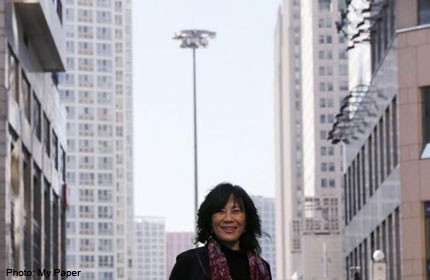Tip for Hollywood: Think big about China

BEIJING - With a few exceptions, Hollywood studios are moving far more slowly than Chinese companies in the world's second-largest movie market, said United States film producer Janet Yang, whose works include The Joy Luck Club (1993).
Many studios, like Paramount Pictures with its Transformers franchise, have been taking steps to appeal to China's fast-growing audiences by hiring Chinese actors or featuring Chinese products in their films.
Others are doing co-productions in China and some, like Dreamworks Animation, have forged nascent partnerships.
But, largely, "the studios are not doing that much right now. They are feeling it out," said Yang, 57, who has built a career melding East with West since she served as an adviser for Steven Spielberg's 1987 movie Empire Of The Sun, which was shot partly in Shanghai.
"I've never seen so much talk about things with so few results. But that's going to change," Yang, named one of the 50 most powerful women in Hollywood by the Hollywood Reporter, told Reuters during a visit to China.
"It's two systems trying to come together, so there's a lot of dating and few engagements and marriages, but probably more on the way."
Despite an import quota, Hollywood movies have dominated China's box office - until that changed dramatically this year.
In the period from January to June, domestic films outperformed imported ones by 65 per cent. That was a major reversal from the same period last year, when proceeds from imported films almost doubled those of domestic productions.
The stakes are high. Last year, box-office revenue in China was US$2.8 billion (S$3 billion). In the first six months of this year, it hit nearly 11 billion yuan (S$2 billion).
Those sales lag behind North America's US$10.8 billion last year, but PricewaterhouseCoopers predicts the box office in the world's most populous nation will hit US$5.5 billion by 2017. China has about 15,000 movie screens and builds five to 10 each day.
Yang, who helped Disney adapt High School Musical for a Chinese audience, said US studios are taking mostly "defensive measures" to avoid alienating an increasingly important market, but should start to think bigger.
"How about actually creating something that is appealing for the Chinese and also for the global market? I believe it's possible," she said.